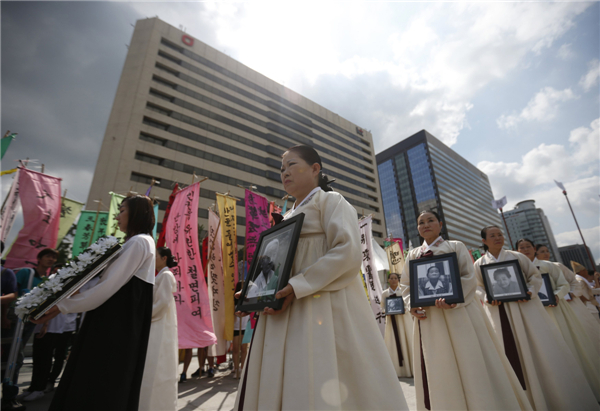Abe rules out visit to Yasukuni shrine
Updated: 2013-08-15 07:46
By Zhang Yunbi (China Daily)
|
||||||||
Japanese Prime Minister Shinzo Abe has decided not to visit the war-linked controversial Yasukuni Shrine on Thursday, the 68th anniversary of Japan's surrender in the World War II, local media reported.
|
||||
Powerful conservative groups expect the Japanese leader to visit the shrine on the anniversary. The shrine honors 14 class-A war criminals.
But Abe wants to avoid paying a heavy diplomatic price by angering Japan's neighbors who were victimized by his country in World War II, observers said.
"The prime minister made the decision not to visit the controversial shrine after considering Japan's own national interests in diplomacy with China and South Korea," said Zhang Boyu, deputy director of the department of Japanese political studies at the Chinese Academy of Social Sciences' Institute of Japanese Studies.
Beijing urges Tokyo to "honor its commitment" of admitting and reflecting on its history of aggression, Foreign Ministry spokesman Hong Lei told China Daily on Wednesday.
Japan should "restrain its remarks and behavior with precaution in relevant issues to win the trust of people from victimized Asian countries and the world", Hong said.
Japan's Kyodo News Agency defines the shrine as "a symbol of Japanese past militarism". Visits to the shrine by Japanese officials have sparked outcries, most notably in China and South Korea, both of which suffered under a brutal Japanese wartime occupation.
Yet conservative groups, including the Nippon Izokukai, have long encouraged government officials to visit the shrine.
Japan's leading media have not attributed Wednesday's latest update of the prime minister's decision to any source, and neither the prime minister's office nor the party's headquarters would confirm the media reports, Reuters said.
Before Japan's lower house election in December, Abe expressed "great regret" about not visiting the shrine during his first term as prime minister in 2006-07. Japanese media labeled such remarks as efforts to win the hearts of radical voters.
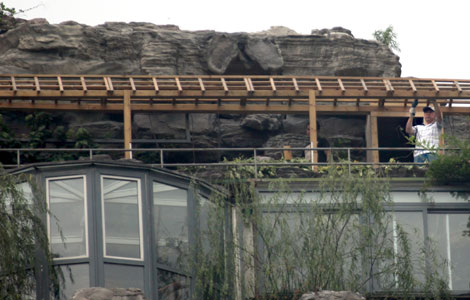
 Demolition work starts on rooftop villa structure
Demolition work starts on rooftop villa structure
 Thrills in store for Chicago Air and Water Show
Thrills in store for Chicago Air and Water Show
 Memorial to expeditionary soldiers opens
Memorial to expeditionary soldiers opens
 Death toll from Egypt violence rises to 638
Death toll from Egypt violence rises to 638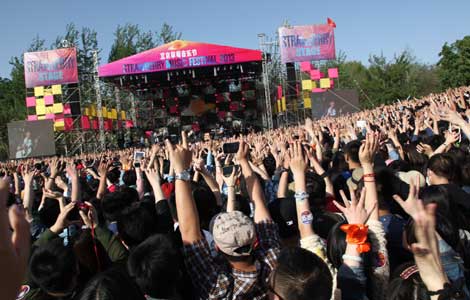
 Tunes that travel
Tunes that travel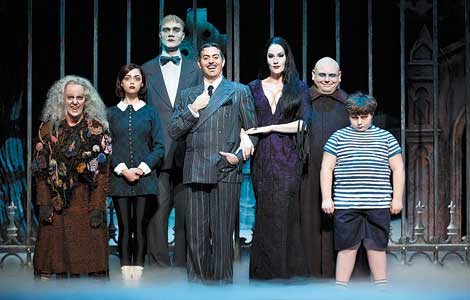
 Macabre Addams Family tests musical tastes
Macabre Addams Family tests musical tastes
 Spielberg has desire to work with Zhang Yimou
Spielberg has desire to work with Zhang Yimou
 Li Na advances to 3rd round at Cincinnati Open
Li Na advances to 3rd round at Cincinnati Open
Most Viewed
Editor's Picks

|

|

|

|
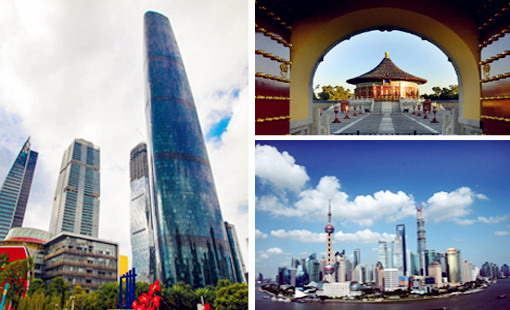
|

|
Today's Top News
No remorse as Abe marks surrender anniversary
China to be world's No 1 consumer
China Mobile looks to data services
Beijing, Moscow hail military ties
Japan exports to China at lowest in four years
Fish ecosystem 'on verge of collapse'
First public rental housing fund launched
Trimming standard ideas of butchering
US Weekly

|

|
